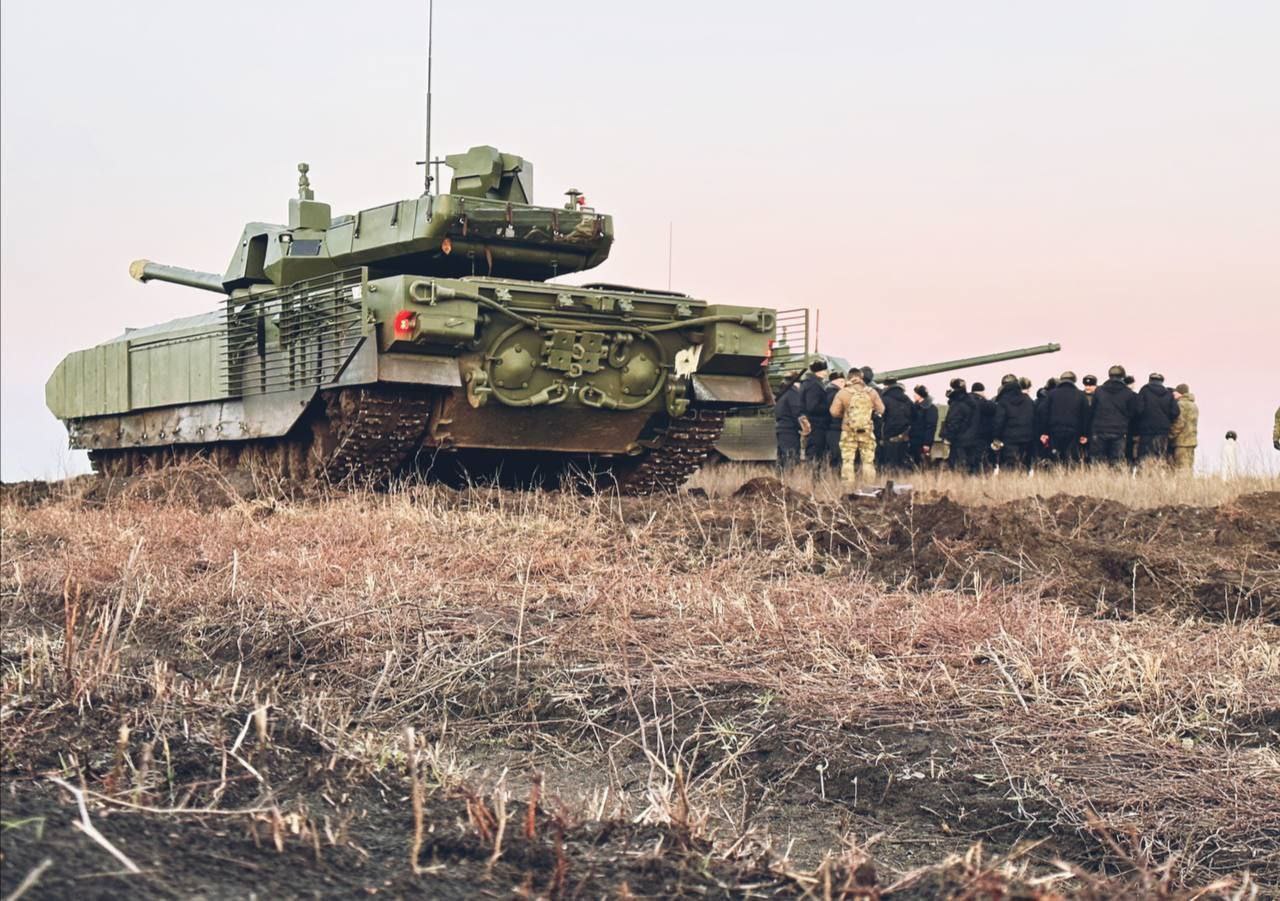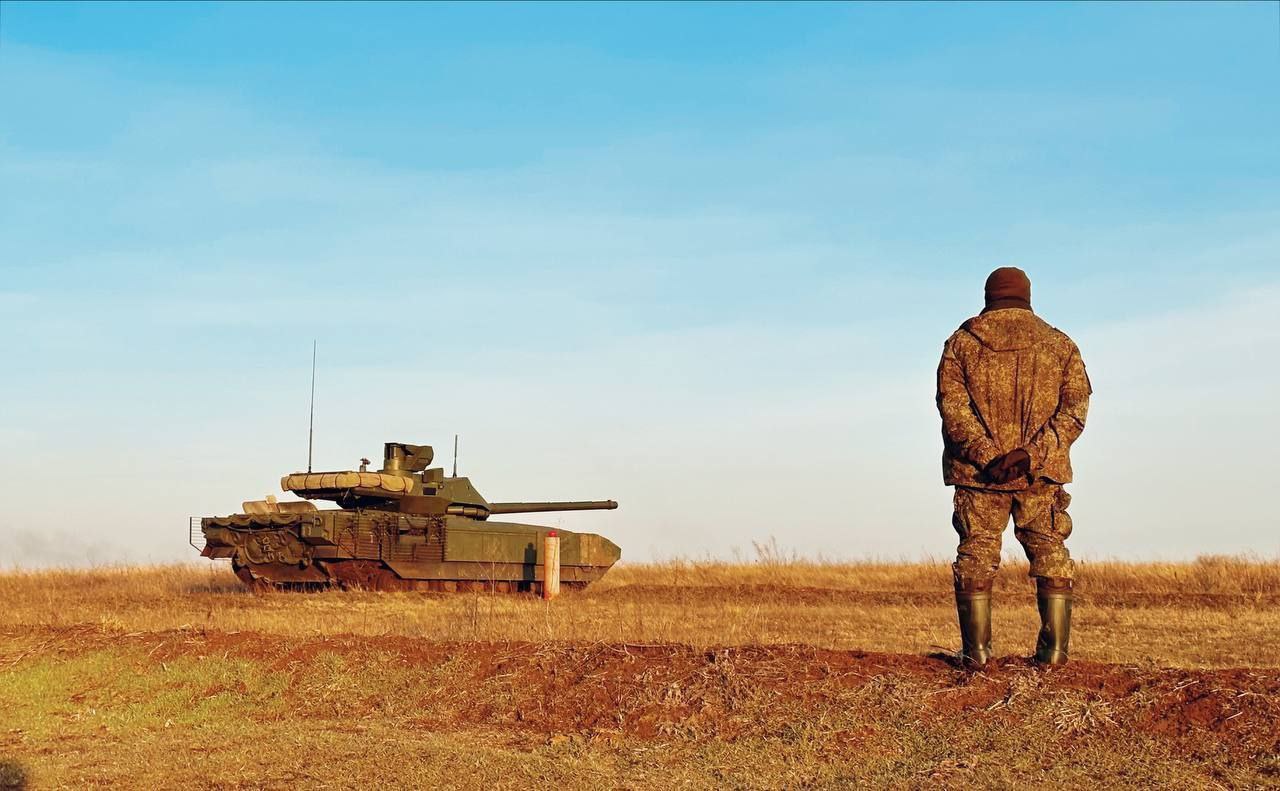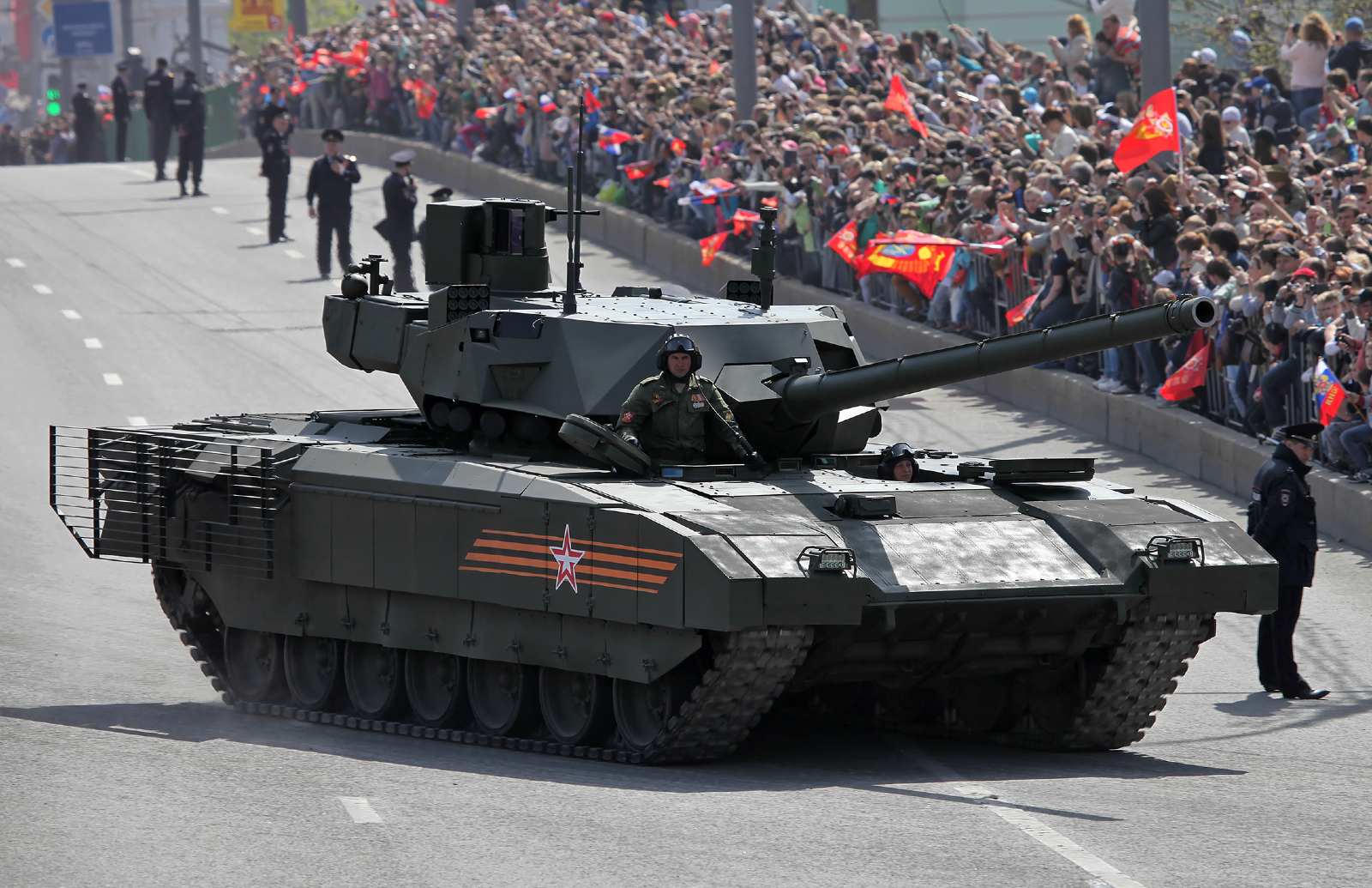Videos and images of Russia’s most advanced Main Battle Tank (MBT), the T-14 Armata, have surfaced online, with several Russian media sources reporting that the tank has been spotted inside the ‘Special Military Operation’ zone.
Russian TV presenter Vladimir Solovyov shared several photos and videos of the T-14 Armata on Telegram, saying, “I am returning from another trip to the front line with the first shots of the combat coordination of the crews of the T-14 Armata tanks.”
It is not known precisely where the T-14 was filmed or photographed, but Russian reports suggest the crews of the T-14 were filmed while conducting combat coordination training, probably in the rear area of a ‘special military operation,’ which is Moscow’s official term for its invasion of Ukraine.
According to certain Russian media sources, the tanks are preparing to be deployed in Donbas.
1)Vladimir Solovyov went to the Donbass, looked at the T-14 Armata tank. Yes, the tanks are already there at the training ground. Crews of tanks are combat coordination. Soon into battle, the crews can not wait to hit the enemy. Well, what else to say? pic.twitter.com/IGlm5yAe6p
— Яннис В.Зброек (@yanvonzeebroeck) December 25, 2022
T-14 Armata
UralVagonZavod, a subsidiary of the Russian state-owned defense conglomerate, Rostec, has developed the T-14 Armata. It was first unveiled at the Moscow Victory Day Parade in May 2015.
The tank is based on the Armata Universal Combat Platform – a next-generation modular heavy military tracked vehicle platform. It can also build additional armored vehicles, including large infantry fighting vehicles (IFVs) and armored personnel carriers (APCs).
🇷🇺🇺🇦T-14 on the frontline
T-14 Armata tank is preparing for battles in the zone of Special Military Operation pic.twitter.com/oqgfqxr9FZ
— AZ 🛰🌏🌍🌎 (@AZgeopolitics) December 25, 2022
The T-14 features digitized technology and three compartments, which include the hull with three crew members at the front, the unmanned remote-controlled turret weapons station in the middle, and the powerplant in the rear.
There are three hatches at the front of the hull, with the driver on the left, the gunner in the middle, and the tank commander on the right. The three-man crew is seated in a unique armored capsule.
The unmanned turret on the T-14 Armata is armed with a 125mm 2A82-1M smoothbore cannon with an automatic loader. There are 45 rounds of ammo in the turret, including 32 rounds ready to use. The main gun can also fire laser-guided missiles ranging between seven to 12 kilometers.

The 2A82 125mm gun can be replaced with a new 2A83 152mm gun in the future which can reportedly fire a new guided missile capable of breaking through the armor that is twice as thick as that of the American Abrams tank.
For protection, the T-14 is equipped with the Active Protection System (APS) to intercept and destroy incoming missiles. The T-14’s APS can reportedly defend against all types of anti-tank missiles.
Also, the tank has reactive armor in the front and bar armor in the rear for additional protection against rocket-propelled anti-tank grenades (ATRPGs). Other active and passive armor can be provided to the tank if needed.

Furthermore, the tank is fitted with NBC (nuclear, biological, and chemical) protection, an automatic fire suppression system, and smoke grenade dischargers.
As per a previous analysis by EurAsian Times, the Russian-made T-14 can operate in temperatures as low as -50 degrees Celsius, equipped with mobile power stations that ensure an immediate and smooth engine start even in freezing weather.
Experts suggest the T-14 is Russia’s answer to the US-made M1 Abrams third-generation battle tanks, which destroyed 37 Soviet-designed T-72 tanks during the 1991 Gulf War.
Does Russia Have Enough T-14s?
That said, it remains unclear how many tanks, in total, could be deployed to the combat zone, considering that the Russian military does not seem to have many T-14 tanks.
The videos show at least two tanks moving along a dirt road, with one depicting dense fog in the area.
Last year, in November, Russia’s state-owned TASS news agency reported that a batch of 20 experimental T-14 tanks would be delivered to the Russian Army’s operational units by the end of 2021.
About a month later, in December 2021, the state-owned Rostec Corporation announced the start of serial production of the T-14 Armata tank.
“Our new T-14 tank, which everyone in the world is already talking about, we are launching it into mass production,” said Vladimir Artyakov, First Deputy General Director of the Rostec state corporation, said in an interview with Russia-24.
However, shortly before the announcement by Artyakov, Andrei Yelchaninov, First Deputy Chairman of the Board of the Military Industrial Commission (MIC) of Russia, said in an interview with Interfax that the tests on the T-14 are ongoing and are expected to be completed in 2022, and “more than 40 Armata tanks will be transferred to the troops after 2023.”
This would suggest that Russia could be deploying the T-14s from its experimental batch to test in active combat so that the experiences from the combat zone could be incorporated into the further development of the tank.
So far, the most modern serial production Russian main battle tank (MBT) deployed in active combat in Ukraine is the Uralvagonzavod-designed T-90M “Proryv,” also sometimes referred to as “Proryv-3” (Breakthrough-3).
Reports suggest the upgrades to the T-90 were also derived from the combat experience of the Russian Armed forces gained in Syria.






